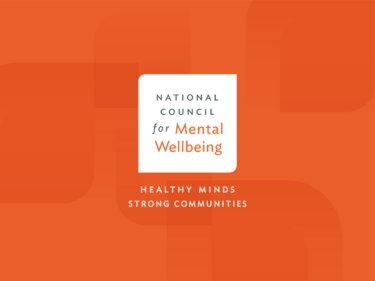BREAKING NEWS
In a recent study published by the Centers for Disease Control and Prevention (CDC), researchers compared the impact of opioid use disorder (OUD) services provided via telehealth to Medicare beneficiaries prior to the pandemic and during the pandemic, particularly related to medication-assisted treatment (MAT) for OUD. Researchers found that the group who initiated care during the pandemic were more likely to receive telehealth services than the group who initiated care before the pandemic. Also, the group who initiated MAT through telehealth during the pandemic had a significantly higher treatment retention rate as well as a lower risk of medically treated overdose, compared to individuals not receiving MAT through telehealth.
Main Stories:
- FDA Releases Overdose Prevention Framework
- Event: The Cost of Mental Health Inequities
- Youth Mental Health Grants Awarded by HHS
- Request For Information Promoting Efficiency and Equity Within CMS Programs
- Become a NatCon23 Speaker!
FDA Releases Overdose Prevention Framework
The Food and Drug Administration (FDA) released a new Overdose Prevention Framework, to provide focus for FDA actions to address the ongoing and evolving overdose crisis. FDA identifies four key priorities in the Framework: (1) supporting primary prevention; (2) encouraging harm reduction; (3) advancing development of evidence-based treatments; and (4) protecting the public from unapproved, diverted, or counterfeit drugs presenting overdose risks. While the first three priorities parallel those set by the Overdose Prevention Strategy of the Department of Health and Human Services (HHS), the fourth is intended to enhance the security of drug supply chains by FDA prevention and enforcement efforts to reduce counterfeit drugs and illegal online sales.
Event: The Cost of Mental Health Inequities
The Hill will host an event (both virtual and in-person) examining the cost of mental health inequities and how those costs may increase if unaddressed. Speakers will include Senator Bill Cassidy (R-LA), and leaders from the National Alliance on Mental Illness and Satcher Health Leadership Institute. The discussion will explore the economics of mental health inequities in America, including how to approach these inequities in the future. For more information and to register, click here.
Youth Mental Health Grants Awarded by HHS
HHS, through the Substance Abuse and Mental Health Services Administration, announced more than $47 million in new grant funding opportunities, designated by the Bipartisan Safer communities Act, that will go to programs to develop a sustainable infrastructure for school-based mental health programs and assist high-risk youth and families by promoting resilience and equity in communities. These programs include: the Project Advancing Wellness and Resiliency in Education (AWARE) program ($37.6 million) and the Resiliency in Communities after Stress and Trauma (ReCAST) grant program ($10 million). These youth focused mental health programs will help expand and strengthen access to vital mental health care across the country.
Request For Information Promoting Efficiency and Equity Within CMS Programs
The Centers for Medicare and Medicaid Services (CMS) issued a request for information regarding the agency’s payment policies and quality programs. The agency is specifically interested in comments from stakeholders on the following topics: health care accessibility; provider experiences; advancing health equity; and the impact of COVID-19 Public Health Emergency (PHE) waivers and flexibilities. According to CMS the agency is seeking to better understand burdens on the individual and communities, opportunities to reduce disparities, and ways to promote innovation and efficiency in its programs. CMS will accept responses until November 4. For more information, click here.
Become a NatCon23 Speaker!
Save the date for NatCon23 from May 1-3 in Los Angeles, California! Want to become a NatCon23 speaker? Our “call for presentations” is now open! Don’t miss your chance to inspire thousands of people at the largest conference in mental health and substance use treatment — apply by Friday, September 23 (11:59 p.m. PT/2:59 a.m. ET). Questions? Contact us.
ADVOCACY CORNER
988 Lifeline Network Workforce Webinar. Join HHS, SAMHSA, Vibrant Emotional Health, Active Minds, and Young Invincibles for a briefing on the 988 Suicide & Crisis Lifeline’s workforce efforts and opportunities for young people to participate. 988 Lifeline call centers are looking for empathetic volunteers, employees, and interns to serve as crisis care counselors answering the phone, chat, and texts, and managers with advanced degrees. During this briefing, you’ll hear directly from HHS senior leadership and students/recent grads who are currently 988 Lifeline Crisis Counselors on the 988 resources available to young people and the workforce opportunities. The webinar will take place September 15 at 1:30 EDT, register here.
HAPPENING ON THE HILL
CMS Proposes Changes to Medicaid, CHIP Eligibility Determination, Enrollment, and Renewal Processes. Last week, CMS proposed (analysis) changes to the eligibility determination, enrollment, and renewal processes for the Medicaid Children’s Health Insurance Program (CHIP), and Basic Health Programs (BHP) (fact sheet; press release). If finalized, the proposed rule would streamline the application process and simplify enrollment in Medicaid and CHIP for eligible individuals who may otherwise opt out of the program as a result of the burdens caused by the application process. The deadline to submit commits is November 7 at 5:00 PM EDT.
Observing Recovery Month. Recovery Month is a time for us to raise our voices for recovery, deepen our understanding of it and celebrate the incredible gains made by so many across the country. With its tagline, “Recovery is For Everyone: Every Person. Every Family. Every Community,” Recovery Month reminds us that no one is alone on their recovery journey. We are all in this together. To help you recognize this important observance — and bring awareness to all-things recovery — we compiled a variety of tools, resources and learning opportunities. Visit our National Recovery Month resource page!
By Mason Lee, Policy Associate

